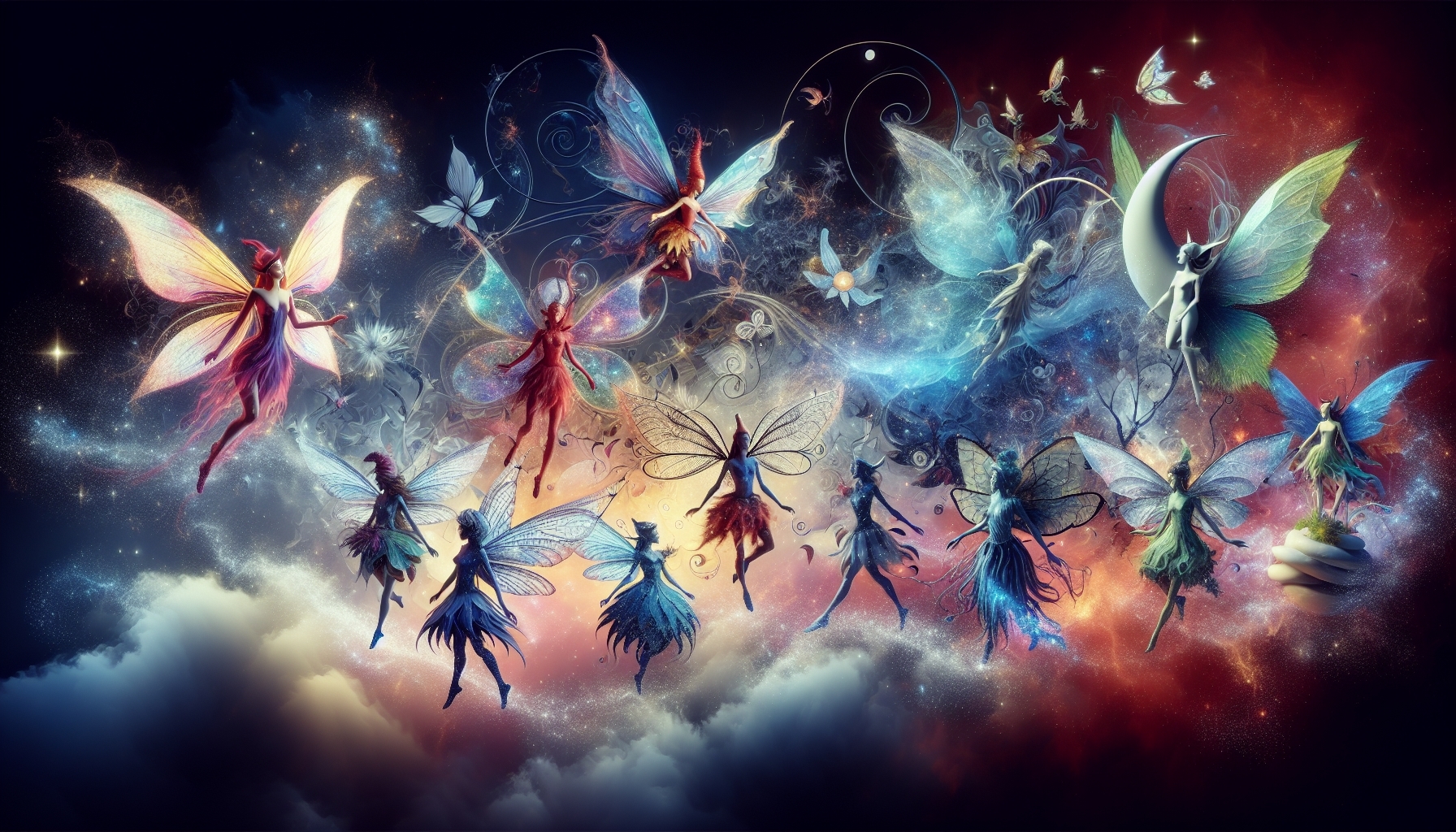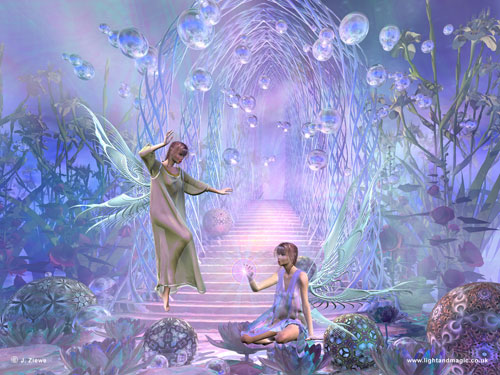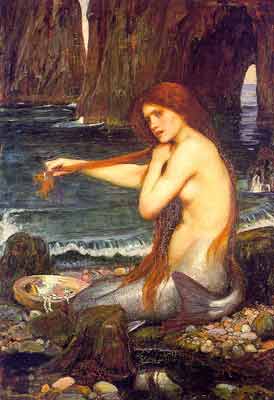
Do Mermaids Exist???
Do Mermaids Exist? This is a question that’s been asked throughout the ages! Let’s have a look at what we DO know.
Legends of mermaids and other mythical creatures from various cultures have been in folklore for centuries.
Today's folklore tells us that Mermaids and their male counterparts Mermen, are water creatures with the head and upper body of a human and the lower body of a fish. They live primarily beneath the sea.
Do Mermaids Exist?? What Others Call Them
Sirens and Gentle Selkies
Sirens, often confused with mermaids, are mythological creatures famed for their mesmerizing songs that led sailors to their doom. Unlike the malevolent sirens, Selkies from Scottish and Irish folklore are gentler beings. They live as seals in the sea but shed their skin to walk on land as humans. The transformation of Selkies highlights themes of freedom and captivity, mystically connecting the oceanic depths with the human world.
#### Divine Spirits: From Naiads to Triton
Naiads, the serene nymphs of freshwater bodies, and Triton, the striking merman of Greek mythology, son of Poseidon, enrich these sea legends. Triton, often depicted carrying a conch shell trumpet through which he could calm or raise the waves, serves as a potent symbol of the ocean’s dual nature — both nurturing and destructive.
#### Oannes: The Babylonian Insight
From the shores of ancient Babylon, Oannes emerges as a unique deity, half-man and half-fish. According to myths, he emerged from the sea daily to impart wisdom to people, blending the divine knowledge of the gods with the mysterious abyss of the ocean.
### Cultural Reflections of Mermaids Around the World
#### The Transformation of Atargatis
The Assyrian myth of Atargatis tells a poignant story of the goddess transforming into a mermaid out of remorse and grief after the accidental death of her human lover. Her tale, originating around 1000 BC, is one of the earliest depictions of mermaid mythology, showcasing themes of love, tragedy, and transformation.
Celtic and Japanese Interpretations
In the chilly waters around the Shetland and Faroe Islands, Celtic legends whisper of mermaids who navigate the undersea and terrestrial worlds by donning or shedding fish skins.
#### Mystical Storm Summoners: Kelpies and Blue Men of the Minch
Scottish folklore is rife with stories of Kelpies and the Blue Men of the Minch, malevolent spirits believed to control the weather and fate of sailors. These legends often involve challenges or bargains, reflecting the unpredictable nature of the sea and the thin line between safe passage and calamity.
Kelpies - Blue Men of the Minch (also known as storm kelpies), are said to dwell in the Outer Hebrides (off the coast of Scotland). They are thought to summon storms, sink ships and drown sailors—but with a twist…they first challenge the ship’s captain to a rhyming contest, and if the captain can best the Blue Men, his sailors are spared!

Other Cultures Think Mermaids Do Exist

Many cultures from all over the world are known to have myths and legends about these water-creatures.
In Assyrian (present-day Syria/northern Iraq) mythology, about 1000 BC, the beautiful fertility goddess Atargatis is said to have cast herself into a lake, a self-punishment from shame and/or grief from inadvertently killing her lover; she retains her feminine beauty above the waist while having a fish tail instead of legs, essentially becoming a mermaid.
Japan - I read that in a temple in Fukuoka, Japan, the remains of a mermaid, washed ashore in 1222, are housed. A priest believed she had come from the legendary palace of a dragon god at the bottom of the ocean. Ryujin, ruler of seas and oceans, was described as a dragon capable of changing into human form. Ryugujo, “dragon palace castle” undersea, is where he kept the magical tide jewels. The water that was soaking the mermaid’s bones was said to prevent disease and illness. Few bones remain now, and as they were never scientifically tested, their true nature remains a mystery.
Similarly, Japanese folklore enriches the tapestry of mermaid myths with stories of Kappa, mischievous water spirits, and the mystical mermaid whose remains allegedly rest in a temple in Fukuoka, believed to be connected to the celestial underwater dragon kingdom of Ryujin.
#### Historical Sightings and Modern Confusions
Christopher Columbus, during his 1493 voyage, claimed to have seen mermaids near the Dominican Republic, describing them less as enchanting beauties and more as strange, man-faced creatures in the sea. These sightings, often attributed to manatees or dugongs by modern scholars, suggest that mariners of old might have been mistaking these aquatic mammals for mythic merfolk.
#### The Influence of Media and Myth
In 2012, the fictional documentary "Mermaids: The Body Found" aired on Animal Planet, blending science and fantasy to suggest the existence of mermaids. The show was so convincingly made that it prompted the National Oceanic and Atmospheric Administration (NOAA) to officially declare that no evidence of mermaids has ever been found.
Do Mermaids Exist, though?
There have been many mermaid sightings over the years, but perhaps none more sincere than this excerpt from the diary of Christopher Columbus, January 9, 1943:
“The day before, when the Admiral was going to the Rio del Oro, he said he saw three mermaids who came quite high out of the water but were not as pretty as they are depicted, for somehow in the face they look like men. He said that he saw some in Guinea on the coast of Manegueta.”
### Conclusion: The Enchanting Power of Mermaid Myths
Do mermaids exist? The answer lies not in the ocean depths but in the human heart and mind. These stories, from ancient myth to modern fiction, reflect our intrinsic fascination with the unknown and our eternal connection to the vast, mysterious ocean. Whether serving as cautionary tales, cultural symbols, or sparks of imagination, mermaids remind us of the deep-seated curiosity and awe that define the human experience.
### Conclusion: Reflecting on the Existence of Mermaids
While no concrete evidence supports the physical existence of mermaids, the cultural and psychological realities they represent are undeniable. These creatures continue to swim through the currents of human imagination, symbolizing our innate fear of and fascination with the unknown depths of the ocean. Through their stories, we confront our desires, fears, and the boundless mysteries of the natural world.
### Author's Note - Imagining a Mermaid's Tale
As a writer who thrives on weaving suspense and mystery into the fabric of narrative, I find the universal tales of mermaids particularly captivating. These stories serve not only to entertain but to probe the profound depths of human emotion and the enigmatic laws of nature. Plunging into this aquatic lore offers a sea of possibilities for storytelling that enthralls and enchants, urging us to look deeper into the unknown.
### Writer’s Reflection - John Sanford’s Take
"If I were to cast this narrative into one of my thrillers, I'd place my protagonist in a coastal town, wrestling with the blurred lines between myth and murder. The mermaid lore would serve as a perfect backdrop, weaving through the plot like a dark, twisting current. This exploration journeys into the heart of human belief and the myths we create to make sense of the inexplicable."
Through such a lens, the mermaid myth presents not only a captivating mystery but also a rich vein of culture and history, ripe for storytelling. Icons like these keep the pages turning and the shores whispering of secrets yet to be uncovered.
Let me present the other side of the coin here! Some researchers believe that sightings of other sea animals, such as manatees and dugongs (similar to a manatee), may be responsible for merfolk legends—and when you think about the possible conditions at sea, the weather, the waves, the lighting/shadows, the distance (and maybe some grog!), anything is possible!
Animal Planet presented a fictional special, “Mermaids: The Body Found”, presenting the story of scientists finding proof of real mermaids in the oceans. It was presented in documentary form and was SO convincing, that NOAA was forced to issue a statement officially denying the existence of mermaids--but much like the debate over the existence of “aliens”, I wonder if such “super-natural” evidence WAS, in fact, real, might it be denied “for the good of the people”?
What do you think?!
